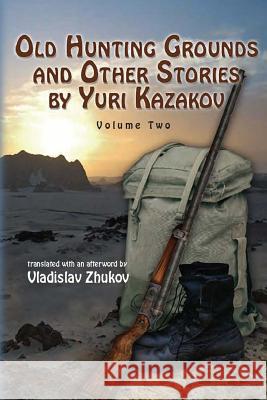Old Hunting Grounds and Other Stories by Yuri Kazakov » książka
Old Hunting Grounds and Other Stories by Yuri Kazakov
ISBN-13: 9780987463715 / Angielski / Miękka / 2014 / 272 str.
Old Hunting Grounds and Other Stories by Yuri Kazakov
ISBN-13: 9780987463715 / Angielski / Miękka / 2014 / 272 str.
(netto: 48,60 VAT: 5%)
Najniższa cena z 30 dni: 50,18
ok. 16-18 dni roboczych.
Darmowa dostawa!
In this second volume Kazakov presents more of his engaging character-cameos and North Russian scenic compositions. His pristine settings are once again living presences described with the touch of a 'psychologist of nature', to quote one of his admirers, the poet Andrei Voznesensky. This was a region whose inhabitants as late as the second half of the 20th century were still largely unaffected by the complexities of modernity, folk for whom the great world was the primordial one of their surroundings: an immediately-sensed universe extending from the near, and at first glance ordinary, outwards to the heavens of the northern lights and the very stars. It is or was until recently still possible beside such places as the White Sea and its adjacent forests and tundra to daily observe country people living in that sort of integration with nature, accepting without question the ocean, the land, and the seasons as the determining power in their lives, and be hardly aware of any other; it was certainly possible a generation ago in Kazakov's time, even in a nation which for years had been frenetically industrialising and whose relation with its environment was relentlessly exploitative. But in the cities as well, including that modernising hothouse or engine which was the Soviet Union's Moscow, some sense of that unity with nature still lingers in these stories, and not merely because references to climate are inescapable in Russian writing. Kazakov saw no opposition between urbanised, technologically evolving humans and the rest of the universe we call 'natural'. An intercity bus or elektrichka or silver-bellied aeroplane was to him as remarkable, but not more so, as any outgrowths produced by other organisms or by inorganic matter. If his tales of hunting on land and whaling in arctic waters predominate, if they have defined his milieu and established his reputation, it was because to his retrospective imagination those were in his time, and perhaps still are in ours, clear if departing instances of that integration, that give-and-take in nature, that sharing in an immemorial cycle of life and of death that itself sustains life in its turn.











